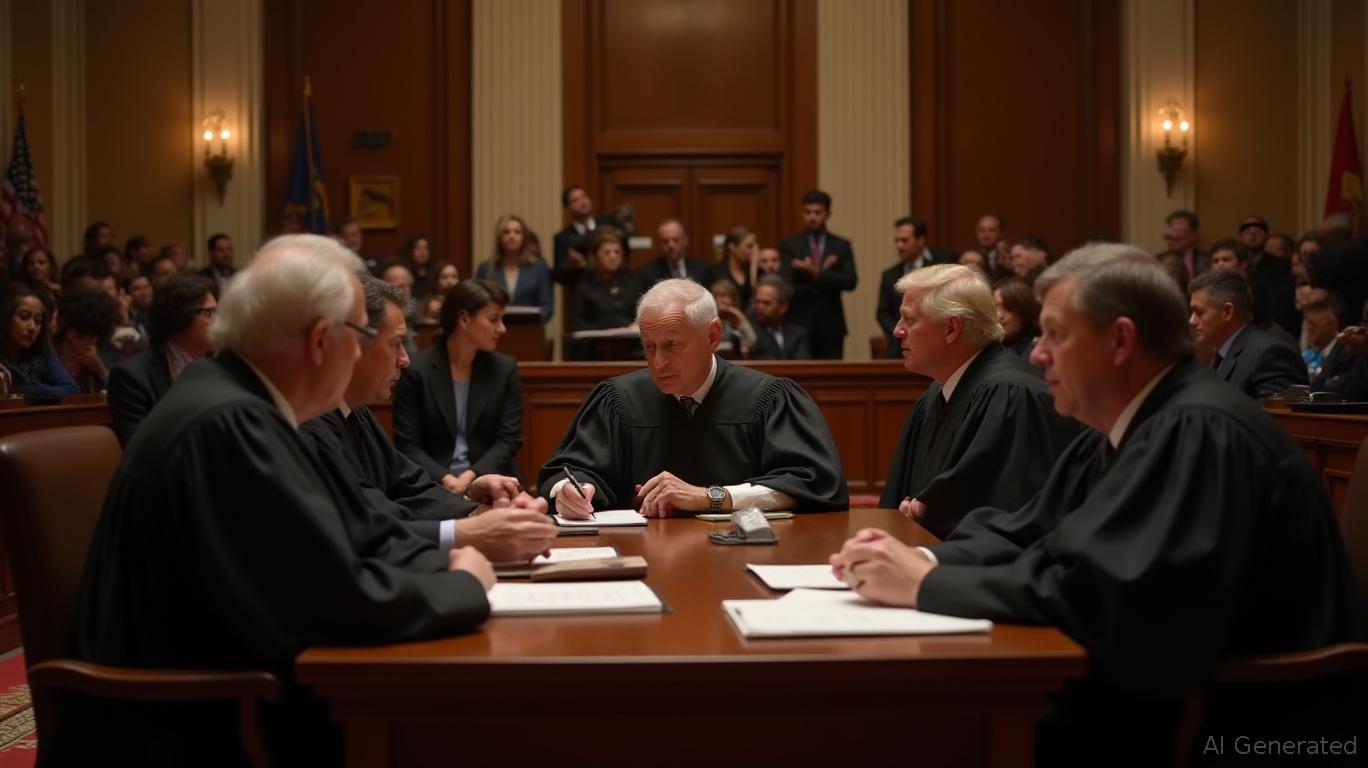Supreme Court to Rule on Whether Trump's Tariffs Broaden Presidential Authority Beyond Congressional Limits
The forthcoming decision by the U.S. Supreme Court regarding President Donald Trump’s extensive global tariffs could significantly alter the scope of presidential authority over trade, with far-reaching effects on national security, international relations, and the economy. Trump, who has described the case as a fundamental challenge to his "America First" policy, has chosen not to be present at the hearing, labeling the lawsuit as "one of the most important decisions in the history of the country," according to a
Central to the case are small businesses and states led by Democrats, who contend that Trump’s tariffs—ranging from 10% to 50% on imported goods—have created turmoil for companies trying to adapt to ever-changing regulations. Rick Woldenberg, a toy manufacturer based in Chicago, illustrates these challenges. His firms, Learning Resources Inc. and hand2mind Inc., were hit with a $50,000 fine after moving production from China to India, only to be affected by another tariff increase, according to a

The administration maintains that the tariffs are vital for national security and economic strength, pointing to issues like the trade deficit and the fentanyl epidemic as justification for acting alone. Solicitor General D. John Sauer argued in legal briefs that the IEEPA’s provision allowing the president to "regulate importation" during emergencies gives implicit authority to impose tariffs, according to Politico. However, lower courts have found by a 7-4 margin that the law does not specifically grant the president the power to broadly tax imports, a view shared by legal experts who highlight that Congress intentionally excluded tariff powers from the IEEPA, Politico reported.
The consequences go beyond legal arguments. Should the court overturn the tariffs, businesses could claim refunds totaling over $100 billion, with major importers such as Walmart, Samsung, and Amazon standing to gain considerably, a
The Supreme Court’s conservative bloc faces a nuanced challenge. Although the justices have often deferred to presidential power in national security, they have also expressed doubt about unchecked executive control over economic matters. Justice Brett Kavanaugh, whose previous opinions stress the "major questions doctrine"—which requires explicit congressional approval for significant regulatory actions—could be a key figure, Politico noted. His past views suggest the tariffs might be ruled illegal, but his support for presidential discretion in foreign affairs adds complexity, according to Politico’s reporting.
This case marks a rare point of vulnerability for Trump. Despite a series of legal successes since returning to office, a loss here would deal a blow to his hallmark economic strategy and diminish his influence in trade talks. Nevertheless, administration officials have backup plans to reinstate tariffs under different laws, though these would involve more administrative obstacles, as Forbes pointed out.
As the justices deliberate, the outcome is poised to reshape the landscape of U.S. trade authority for years to come.